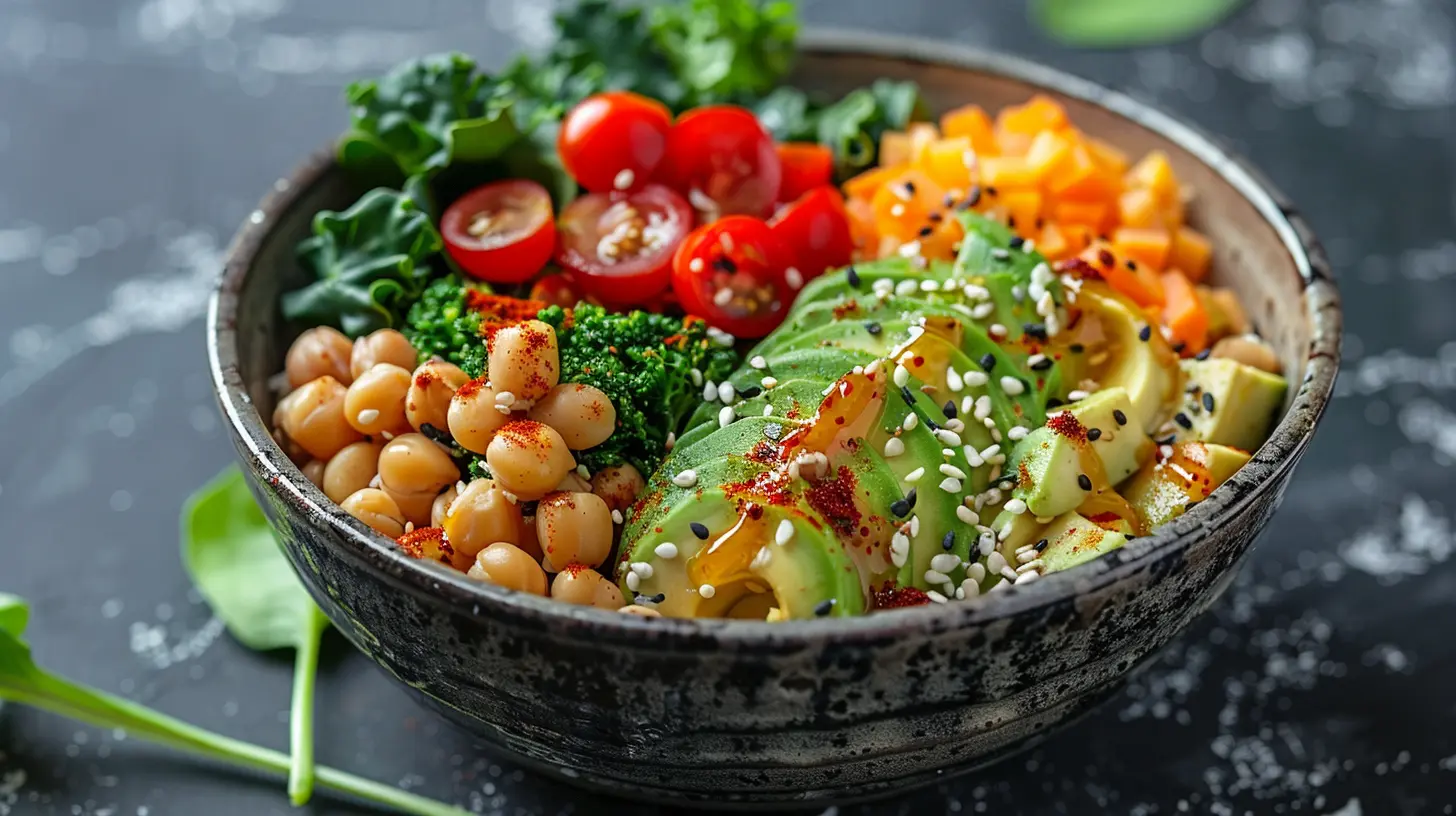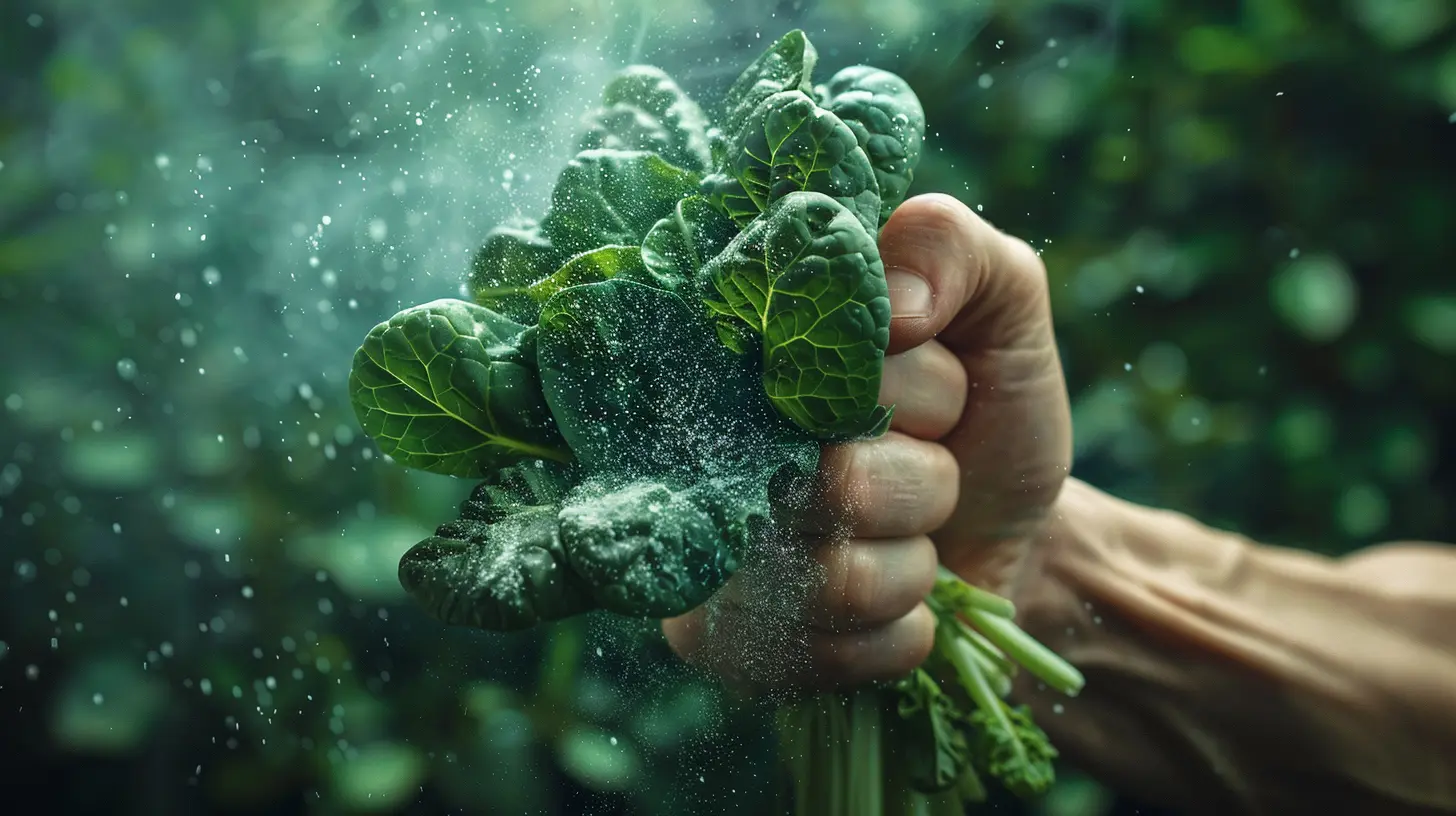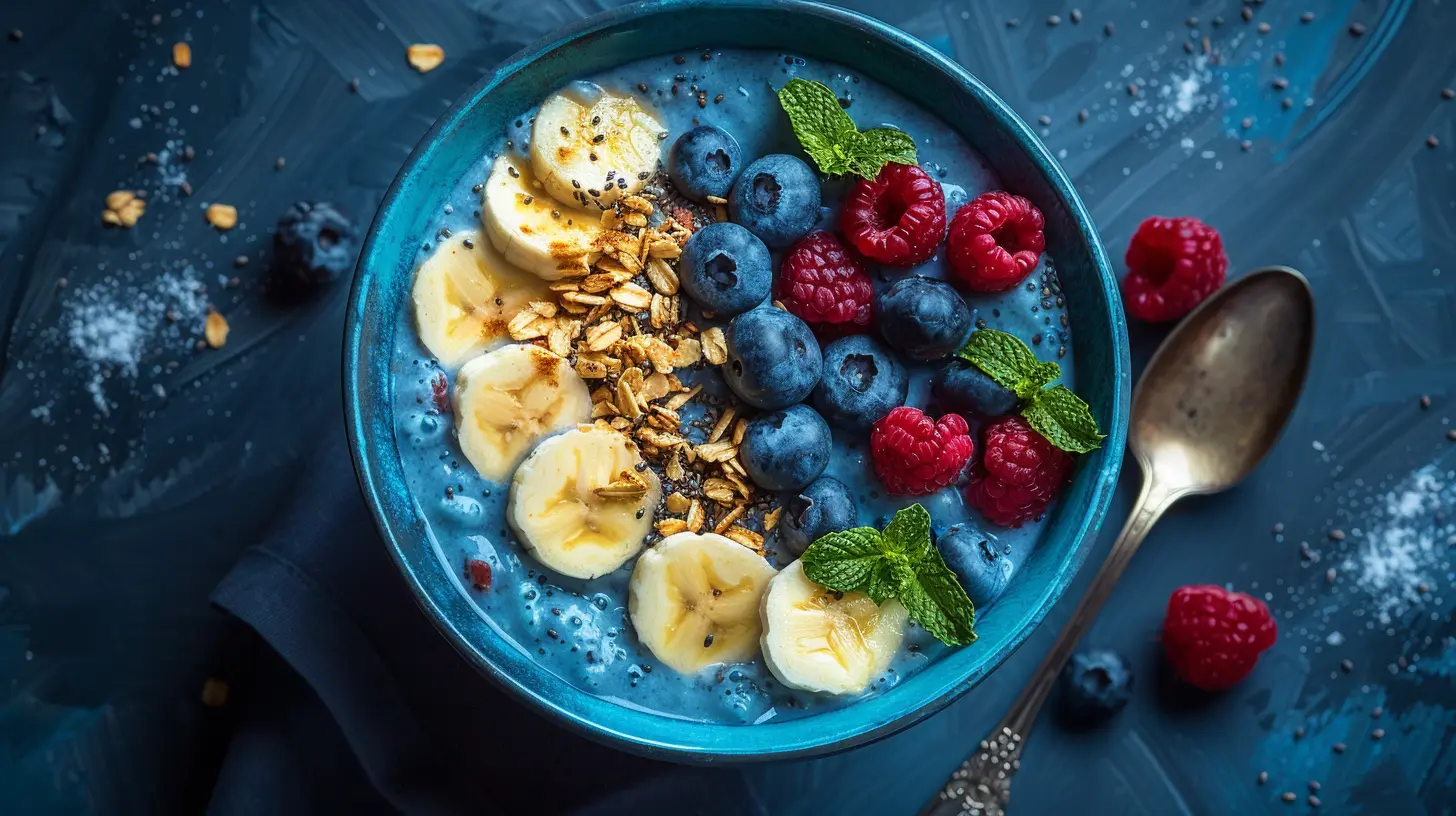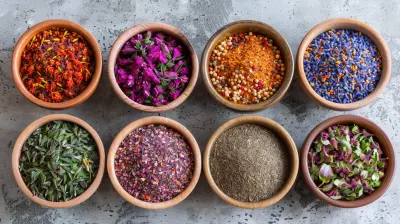How to Stay Energized on a Plant-Based Diet
22 November 2025
Switching to a plant-based diet might sound like a ticket to glowing skin, better digestion, and doing your bit for the planet — and hey, a whole lot of that is true. But let’s be honest. As refreshing and health-boosting as it can be, many people hit a wall of fatigue a few weeks in and wonder, “Why am I so tired?” If that’s you, don’t worry. You’re not alone, and there’s a good reason for it.
Plant-based eating isn't just about tossing out meat and dairy. It’s about understanding how to fuel your body with the right mix of nutrients — especially if you want to keep your energy levels soaring. So let’s get into the good stuff. Here’s how to stay energized on a plant-based diet — without relying on caffeine and wishful thinking.
First Things First: Why Energy Levels Drop
Before we talk solutions, let’s get curious for a second — why does energy dip when you go plant-based?Well, when you remove animal products, you're also removing some of the most concentrated sources of iron, protein, and vitamin B12. If you’re not planning carefully, you might end up not getting enough of these powerhouse nutrients.
Also, plant-based foods tend to have fewer calories per bite than meat or cheese. That’s great for weight management, but not so great if you’re unintentionally under-eating.
Basically, it’s not about what you’re cutting out — it’s about what you’re putting back in. So let’s tackle that.
1. Fuel Up with Complex Carbs
Forget low-carb fads — your body and brain run on carbs. Specifically, complex carbs.Think whole grains like:
- Quinoa
- Brown rice
- Oats
- Sweet potatoes
- Whole wheat bread and pasta
These babies digest slowly and provide a steady stream of glucose (your body’s main energy source). That means no sugar crash, no mid-afternoon yawning, just pure, plant-powered fuel.
If you're skipping carbs thinking they're the enemy — it's time to rethink that. Your energy depends on them.
2. Protein: Don’t Just Wing It
We’ve all heard the question: “Where do you get your protein?” And while plant-based folks get a little tired of it, it’s actually a fair point. Protein isn’t just for building muscle. It plays a role in energy production, hormone support, and even immunity.Here are protein-rich plant foods you should be best friends with:
- Lentils
- Chickpeas
- Tofu and tempeh
- Edamame
- Hemp seeds
- Chia seeds
- Quinoa (yes, again!)
Pro tip? Don’t leave protein to dinner. Spread it throughout your day. A protein-packed breakfast keeps you going much longer than toast and jam ever could.
3. Iron: The Silent Energy Saboteur
Iron is kind of sneaky — when you’re low on it, you feel tired, brain-foggy, and kind of ‘meh’ overall. The catch? Plant-based iron (non-heme iron) isn’t absorbed as easily as the animal kind.But you can totally hack this.
Iron-rich plant foods include:
- Lentils- Spinach and kale
- Pumpkin seeds
- Tofu
- Fortified cereals
Want to boost absorption?
Pair your iron-rich foods with vitamin C. So, squeeze some lemon on your lentils, throw strawberries in your oatmeal, or eat bell peppers with hummus. That’s how you give your iron a helping hand.4. Say Hello to Vitamin B12
Here’s the deal: B12 is crucial for energy, red blood cell formation, and brain function. And it’s not naturally found in plant foods.So you basically have two choices:
- Eat fortified foods (like plant milks, cereals, and nutritional yeast)
- Take a good-quality supplement
No shame in supplementing. Even long-time vegans do it. Without enough B12, your energy can nosedive — and that’s the last thing you want.
5. Don’t Skimp on Healthy Fats
Fat isn’t the enemy — it’s your energy ally.Fats help with hormone production, brain function, and help you feel full and satisfied. Without them, meals feel like something’s missing (and spoiler alert: they are).
Stock up on:
- Avocados
- Olive oil
- Nuts (almonds, walnuts, cashews)
- Seeds (flax, chia, sunflower)
- Nut butters
Add a handful of walnuts to your salad, drizzle olive oil over roasted veggies, or blend peanut butter into your smoothie. Not only will your food taste better, but you'll stay energized for longer.
6. Hydration: The Underestimated Energy Trick
We all think about food when we’re tired. But what about water?Dehydration is one of the fastest routes to fatigue. And if you’re eating a lot of fiber (which you are on a plant-based diet), you need more water to help it all move smoothly through your system.
Aim for at least 8-10 cups a day — more if you're active. If plain water bores you, jazz it up with lemon, cucumber slices, or mint leaves.
Tea counts too — just don’t overdo the caffeine.
7. Fiber is Fantastic — But Ease Into It
Fiber is great for digestion, heart health, and more. But too much too fast? Your stomach could throw a tantrum.Bloating, gas, fatigue — all signs that your body’s adjusting.
So what’s the trick?
- Increase fiber gradually
- Drink lots of water
- Chew well (seriously, it helps digestion)
Once your body adjusts, fiber actually helps stabilize blood sugar — which means steady energy instead of spikes and crashes.
8. Snack Smart, Not Just Often
Snacking isn’t bad — but mindless snacking on crackers, vegan candy, or energy bars can lead to sugar crashes.Instead, think whole-food snacks like:
- Apple slices + almond butter
- Hummus + veggie sticks
- Trail mix (nuts, seeds, a few dried fruits)
- Roasted chickpeas
- A smoothie with protein powder
Snacks should bridge the hunger gap and keep your energy consistent — not send it rollercoastering.
9. Don’t Fear the Multivitamin
The truth? Even the most well-planned plant-based diet can still fall a little short some days.A quality multivitamin – especially one designed for vegans or vegetarians — can fill in the gaps without fuss. Look for one with:
- B12
- Iron
- Vitamin D
- Iodine
- Zinc
- Omega-3 from algae oil
No, popping a pill isn’t a magic wand, but it’s solid backup.
10. Tune Into Your Body’s Signals
This is where it gets real.Not every body is the same. Some people feel like a superhero on a plant-based diet from day one. Others need a little adjusting, tweaking, and experimenting to find their energy balance.
Here’s what to watch for:
- Are you eating enough? (Undereating is common early on)
- Are you including variety? (Beans and rice only won’t cut it)
- Are you listening to hunger/fullness cues?
Journal your meals and energy levels for a week. You might start to spot patterns. Maybe oats make you sluggish but smoothies light you up. Maybe you're skipping lunch without realizing it. Once you see the patterns, it’s easier to fix them.
11. Movement Helps, Even If You're Tired
This one might sound counterintuitive: moving your body even when you're tired can help... energize you.Daily movement — even 20–30 minutes — boosts circulation, improves digestion, and increases energy. Walk, dance, stretch, do some yoga, ride your bike — just get moving.
Plus, exercise improves sleep quality. And better sleep = more energy. It’s all connected.
12. Sleep: The Non-Negotiable
You could eat the most perfect plant-based diet on earth, but if you’re only sleeping 5 hours a night, good luck staying energized.Aim for 7–9 hours of solid sleep. Create a wind-down routine, avoid caffeine late in the day, and go easy on late-night screen binging.
Your body recharges overnight — don’t steal that time from yourself.
Wrap-Up: Plant-Based and Powered Up
So, can you feel energized on a plant-based diet? Absolutely — and then some. But just like you wouldn’t expect a car to run right if you filled it with the wrong fuel, your body needs the right combo of foods to keep humming along.It’s all about balance: complex carbs, high-quality protein, healthy fats, key vitamins, and loads of hydration.
If you’re feeling low-energy, don’t ditch the lifestyle. Take it as a clue to check the nutrition dials — and tweak them.
Your energy is a message. Your body is talking. And now… you actually know how to listen.
all images in this post were generated using AI tools
Category:
Plant Based DietAuthor:

Jackson Mahoney
Discussion
rate this article
1 comments
Tracie McKenzie
I’m intrigued! How do specific plant-based foods compare in boosting energy levels? Are there hidden nutrients we should be aware of?
November 27, 2025 at 5:51 AM

Jackson Mahoney
Certain plant-based foods, like quinoa, lentils, and leafy greens, are rich in complex carbohydrates and essential nutrients that provide sustained energy. Hidden gems like chia seeds and spirulina are packed with omega-3s and B vitamins, crucial for energy metabolism. Balancing these foods can help maximize energy levels on a plant-based diet!


